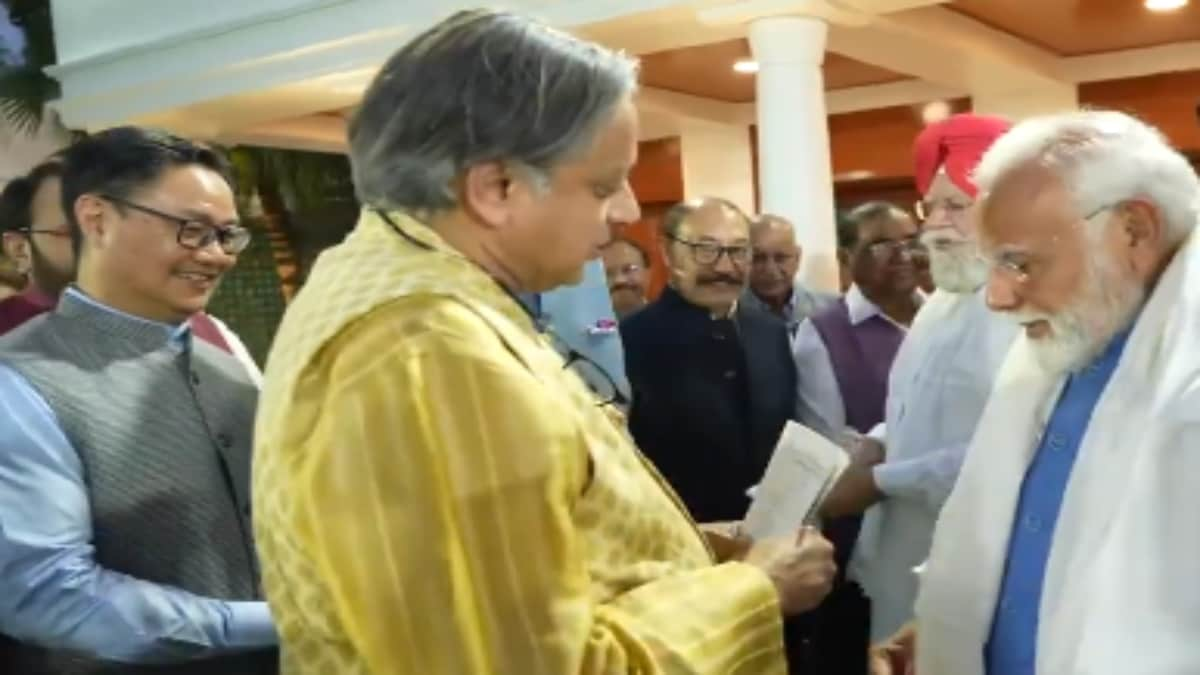

Prime Minister Narendra Modi met with members of multi-party delegations at his residence on Tuesday evening. These delegations had recently traveled to various world capitals to convey India's strong stance against Pakistan-linked terrorism, following Operation Sindoor. The meeting, held at the Prime Minister's official residence, 7 Lok Kalyan Marg, saw members sharing their experiences from their diplomatic missions.
These delegations comprised over 50 individuals, predominantly current Members of Parliament, but also included former parliamentarians and ex-diplomats. They visited 33 foreign capitals and the European Union, engaging with audiences, policymakers, and elected representatives to articulate India's position on Pakistan's long-standing promotion of terrorism. They also highlighted New Delhi's approach to tackling cross-border terrorism in the aftermath of Operation Sindoor.
The initiative to send out multi-party delegations was undertaken by the government to project a message of national unity in the fight against terrorism. The effort saw members from across the political spectrum, including those from the ruling alliance and opposition parties, championing the Indian cause on international platforms. Prominent leaders such as BJP's Ravi Shankar Prasad and Baijyant Panda, Congress' Shashi Tharoor, JD(U)'s Sanjay Jha, Shiv Sena's Shrikant Shinde, DMK's Kanimozhi, and NCP (SP)'s Supriya Sule led their respective delegations to different parts of the world.
External Affairs Minister S Jaishankar had previously met with the delegations and lauded their efforts in conveying India's firm stance against Pakistan-sponsored terrorism. During their presentations to international audiences, the delegations not only highlighted Pakistan's role in sponsoring terrorism against India but also advocated for Pakistan's inclusion in the Financial Action Task Force's (FATF) grey list.
Operation Sindoor was launched on May 7, as a response to the terrorist attack in Pahalgam, Jammu and Kashmir, on April 22, in which 26 tourists were killed. The Indian Armed Forces then targeted terror infrastructure in Pakistan and Pakistan-occupied Jammu and Kashmir.
The seven delegations were composed of 8-9 members each, with a designated leader responsible for guiding the delegation on a global level. The groups visited a diverse range of countries, including Saudi Arabia, Kuwait, Bahrain, Algeria, the UK, France, Germany, the EU, Italy, Denmark, Indonesia, Malaysia, the Republic of Korea, Japan, Singapore, UAW, Liberia, Congo, Sierra Leone, the US, Panama, Guyana, Brazil, Colombia, Spain, Greece, Slovenia, Latvia, and Russia.
Prime Minister Modi, in a post on X, expressed his pride in the manner in which the delegation members presented India's voice on the global stage. He reiterated India's commitment to peace and the need to eradicate terrorism. The meeting underscored the importance of a united front in addressing the menace of terrorism and showcased India's proactive approach in engaging with the international community to achieve this goal.